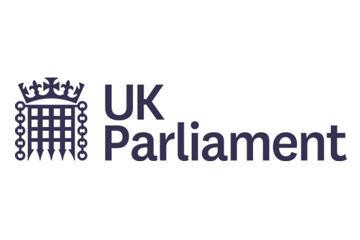
Provision of Specialist Domestic Abuse Support Services in the Domestic Abuse Bill
01/02/2021
On the 1st of February 2021 the Domestic Abuse Bill saw its 3rd session in the Lords. Hourglass urged peers to strengthen support for older people by ensuring adequate provision of specialist domestic abuse support services – both community services and refuge-based services. We were grateful to Lord Dodds, who spoke to the issue directly, you can read his speech here
Amendment 176, tabled by Lord Polak, The Lord Bishop of Derby, Lord Rosser and Lord Russell of Liverpool, introduces a new duty. It would require local authorities, police and crime commissioners and clinical commissioning groups to take reasonable steps to ensure sufficient provision of specialist domestic abuse support services in their local areas, in both the community and in refuges. This must include sufficient provision, where need arises, of services for children and young people, survivors with protected characteristics (for our focus, this would include age) and migrant survivors, as well as perpetrator programmes.
Hourglass supports this amendment because it will ensure services for older people, which have historically been insufficient to need, will not face further disadvantages in the commissioning processes. Similarly, we hope the debate on this amendment will highlight the shockingly low levels of uptake of services by older people – a factor which suggests attitudinal barriers preventing older people seeking support. We know that age does not stop in later life, and all victims of domestic abuse need services appropriate to their needs.
Key aspects:
Community as well as refuge services:
The Bill as it stands risks creating a tiered approach to service provision by placing a duty on local authorities to provide accommodation-based services but not community-based services. This has led to concerns that cash-strapped local authorities will prioritise meeting this duty at the detriment of community-based services.
More older people access community-based services than refuge services (see Women’s Aid data below). The particular experiences of domestic abuse in older age mean often refuges are not appropriate. For example, older women are more likely to have suffered long-term abuse, making leaving the home more difficult. Similarly older victims, men and women, are more likely to have caring duties or their own care and support needs that make refuges inappropriate.
The amendment would share the balance between services. However, this would still need to be met with adequate funding commitments from Government.
Expanding the remit of the duty:
The amendment extends the current statutory duty beyond Local Authorities to Police and Crime Commissioners (PCCs) and Clinical Commissioning Groups (CCGs). This would create a mutual duty to ensure the provision of services, which is preferable as it encourages communication between the health and social care response to adults at risk (The Local Authority and CCGs) and the criminal justice response (PCCs).
Service use – older people:
Women’s Aid service use, broken down by age, is revealing of the exclusion older women face from community and refuge services. From 2010 to 2017, just 2.7% of service users were over 61 - 2% using community-based service and 0.7% using refuges. 1 In 2019-2020 this has risen fractionally, 3.8% of service users were over 61 – 2% using community-based service and 1.8% in refuges.2
Safelives measured the ages of clients accessing independent domestic violence advisor (IDVA) services, England and Wales, year ending March 2016 to year ending March 2020. In 2016 2.5% of clients were over 60; in 2020, 2.7%.3
Other protected characteristics:
The specialist services sector suffers under provision, and a postcode lottery. Women’s Aid consistently report that demand for all services exceeds available provision. In 2019 Safelives research found that only 74% of the required number of Independent Domestic Violence Advisors (categorised as community-based support services) in England and Wales.4 This particularly impacts BAME services, LGBT+ services and specialist disability services. Older women in these groups are likely to face an additional barrier to support, facing exclusion on basis of multiple protected characteristics.
The data from our specialist elder abuse Helpline demonstrates a different gender distribution of callers. In 2019, of calls where the sex of the victim was identified, 67% of calls concerned a female victim, 33% concerned a male victim5. This is an additional reason why services for older people need to be specifically protected, as older men are likely to be excluded from tailored services.
Further context - the existing legal obligations:
The Government are under international legal obligation to ensure specialist support services (UN convention on the Elimination of all forms of Discrimination Against Women, General Recommendations 35); a domestic obligation to provide these without discrimination (Sections 29,13 and 19 Equality Act 2010, and public authorities for the purpose of section 6 Human Rights Act 1998, Arts 3, 8 and 14 European Convention on Human Rights). Public bodies must also have due regard to equality in decision-making concerning service commissioning under the Public Sector Equality Duty. Finally, under the Istanbul Convention, the UK government will have specific obligations with respect to the provision of specialist support services (Article 22(1)). The Convention highlights the importance of addressing “the specific needs of persons made vulnerable by particular circumstances” (Article 12(3)).
1 Women’s Aid: Survival and Beyond: The Domestic Abuse Report 2017 (Published 2018).
2 Women’s Aid: The Domestic Abuse Report 2021: The Annual Audit (2021)
3 ONS: Source: SafeLives – Insights independent domestic violence advisor (IDVA) dataset.
4 SafeLives (2019), 2019 survey of domestic abuse practitioners in England and Wales, 10.
5 Hourglass – 2019 CRM overview.
 Shop Now
Shop Now